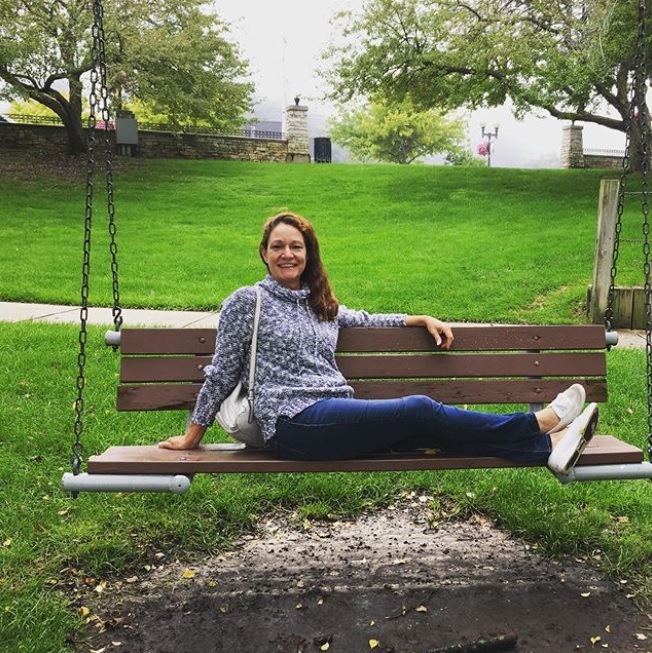That person is you.
How you speak to yourself via your internal thoughts matters because those thoughts and beliefs affect all of your decisions and actions. Your internal story about who you are and what you deserve to have and experience shape your living existence, so it’s important to pay attention to what’s happening on your inner playground.
What I’m talking about pertains to self-awareness, but it also involves a level of subconscious programming you may not be aware of. Let me explain:
Many years ago, I became enamored with personal growth and development. I could see a better version of myself in the future and I worked hard to get there. But then suddenly, the thrill I got from meeting a goal or getting an award vanished into thin air. And in its place, a sense of dread and fear took over. And then a thought: what if none of it mattered anyway?
I was on a roll and suddenly couldn’t figure out why my strategy wasn’t working anymore.
If you’ve ever been on the roller coaster of personal development, you’ll understand when I say that one day you may feel inspired by your motivation for success and the next day feel victimized by everything you’ve placed on your plate disguised as goals and good intentions.
Mel Robbins, an author, radio host, and life coach says in a TEDx talk that if we want to accomplish anything in life or have the life we imagine, that we have to force ourselves to do things we don’t want to do. She says, essentially, we have to learn to parent ourselves in order to get what we want.
When I first listened to her talk, I thought yeah, exactly, that’s right. That’s how it’s done. That’s exactly what I need. But as I let her message sink in and got to thinking about how I could re-inspire my inner parent, that’s when it hit me. I knew exactly what my “problem” was.
Let me start by saying that I agree with Mel’s insistence that we have to parent ourselves into and throughout our adult years if we want to succeed, even at our own game.
And here it comes, the big but…
…what if we were raised by bullies, abusers, and addicts? How then do we reconcile the negative voices that continue in our heads, the voices that use manipulation, shame, and guilt to parent us, to make us comply or do the “right” things?
Is this how we’re supposed to speak to ourselves?
Somewhere along my path of transformation and personal development, learning self-love became more important than meeting well-intentioned goals. I knew the reason that I had such a hard time motivating myself to do more. My old ways of pushing myself weren’t very loving.
We often don’t recognize how much we’ve adapted our early caregivers’ ways of getting us to do stuff into our own—until we wake up one day and realize that we don’t know how to love or care for our own being. We push and berate ourselves endlessly. We beat ourselves up over the smallest things. Maybe we treat our bodies like sh*t. Maybe we overwork because we don’t value ourselves unless we’re nonstop. Maybe we keep getting into relationships with people who lie and cheat and treat us more like enemies than cherished loved ones.
How we speak to ourselves shows up in how we live our lives and in how we treat other people. What we see inside is what we also see outside of us. And sometimes it’s very dark indeed.
So where and when do we learn to parent ourselves in healthy, loving ways and find the encouragement to do the things that will lead us to the kind of life we want and need? Personally, I don’t want to be motivated by fear or guilt anymore. I want to parent myself with love, care, and honest compassion.
And so I had to stop listening. I had to gag my own inner bully, whose voice had been trained by those in my early life. I had to stop all of it, the motivational work, the goal-setting, and the pushing myself to excel, to go above and beyond, and then some.
And then I got quiet because I believed there must be another voice I’d not been listening to.
In that still silence of doing nothing, I found it, but it was so beaten down and ignored, I could barely hear it. But it was there, without a doubt.
When I was a little girl, I used to lay on the gold shag carpet and listen to my mother’s favorite albums. Singers like Judy Garland, Barbara Streisand, Tom Jones, and Andy Williams sang of love and longing and I fell then, head over heels in love with romance and love. I attuned to the words and images as they seeped out of the stereo speakers. I wanted someone to cherish me the way they insisted was possible.
So when I found that voice again, so soft and quiet, I knew if I could listen for it whenever I was feeling sad or unworthy, it might tell me something. It might help me understand why I’m here and what I’m supposed to be doing. It might help me find new ways to relate to myself and to others. It might teach me how to speak—softly, with love.
Does the voice you use with yourself sound like the same voice that raised you? Does it say nice things or does it guilt you into action? Shame you for inaction? You may have to experience a lot of pain at the hands of your own inner bully before you recognize it and learn instead to seek another voice that wants the best for you out of love and self-respect, not manipulation.







Read 0 comments and reply